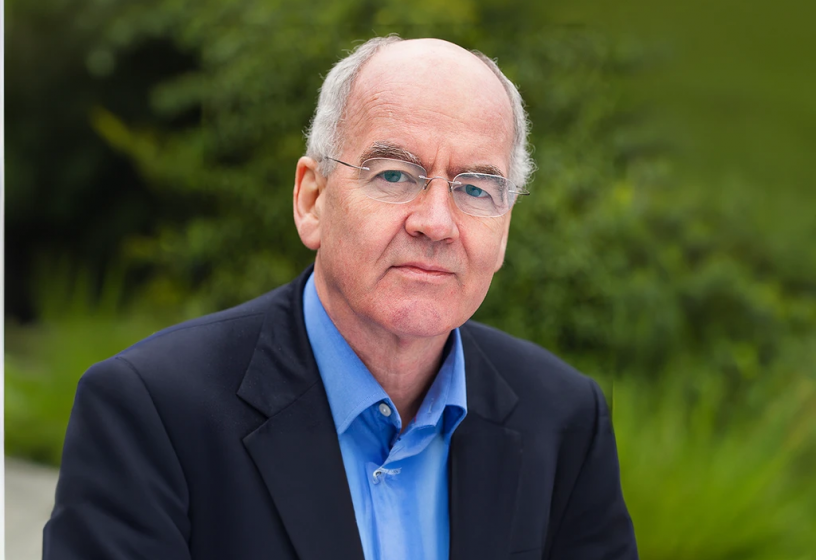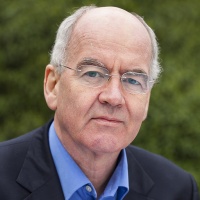Questions to John Elkington
"The best of today's board members acknowledge that the role of business in society is changing and skewing towards more active engagement at every level".

John Elkington is often described as the godfather of sustainable development. Having coined the famous 3 Ps "People, Planet, Profit", he now calls on companies to adopt a regenerative capitalism. Regular on boards of directors - more than 80 to date - he sheds light on their role and ability to make strategic shifts for a change of model.
Sustainability Mag: You coined the famous 3 Ps of sustainability - People, Planet, Profit, or now Prosperity. Is the level of importance given to each of these pillars by boards of directors up to the challenge?
John Elkington: In most large companies, the answer is no, even today. I could point to 6,000-plus B Corporations worldwide, all committed to addressing the triple bottom line (TBL), and perhaps a couple of hundred major businesses now considering sustainability-related topics at board level as a matter of routine. But the broad mass of businesses around the world, millions of them, still have a long way to go.
Part of the problem is that the world’s business schools have been slow to adapt, often blaming the rating and ranking systems that assess their progress. But we do see some schools embracing the sustainability agenda, and related concepts, and certainly many students are now demanding relevant coverage.
Is the juggling of multiple-time horizons the main difficulty facing governance?
It’s probably the most important one. Another one is the juggling of multiple stakeholders and, increasingly, multiple levels and types of government activity. Think of the massive impact of the US Inflation Reduction Act, both within the country on the thinking of business and on political leaders in regions like the EU. The real problem is often that boards have seen the ESG agenda as equivalent to sustainability, which it isn’t, and as a direct read-across from CSR, or corporate social responsibility, which it often is -but shouldn’t be. The Dean of the Wharton Business School told me over a decade ago that sustainability would increasingly be core to everything business schools taught. He was right, but progress has often been glacial.
Precisely, let's take a look at this notion of sustainability. Do organisations that embrace profound systemic shifts towards sustainability - the 'Green Swans' major changes that you describe in your book - have a radically different mode of governance?
Sustainability refers to the state, or health, of a system. If the system is unhealthy, or unstable, incremental change won't get you where you need to go. Instead, you need systemic change, which often operates in what Hemingway called a ‘gradually, then suddenly’ way.
In that context, I see Green Swans as social, political and market trends, to which businesses may or may not respond. Businesses may respond to them, as when embracing the radical cost-reduction curves across the renewable energy sector, but they are like birds of prey riding thermals - or like surfers riding tomorrow’s change waves. So, you could say that any sort of business could tap into these new market energies. And you might ask whether a Tesla, which has certainly ridden Green Swan market trends, has better - or different - board dynamics than the norm? Frankly, I don’t think so, and Elon Musk has shown some distinctly worrying tendencies since he acquired Twitter.
But boards and C-suites that are diverse, in all relevant dimensions, and whose investment cycles are not obsessed with short-term priorities, are better positioned to adapt to - and exploit - the new energies and opportunities. One extreme case is Patagonia, where founder Yvon Chouinard has made Earth the main owner of the multi-billion-dollar business. But you find elements of the same approach, albeit with different stakeholders, in a fair few family-run or state-owned businesses.

John Elkington, during the Luxembourg Sustainability Forum 2022.
In your opinion, what are the key success factors for a truly transformative board?
A clear sense of purpose, informed by a deep understanding not only of today’s market dynamics but also of the forces likely to disrupt them - coupled with a willingness to take well-informed risks to help the business play into the new opportunity spaces. And well-designed incentives at all levels in the business - including timely positive feedback from key external stakeholders.
"Our agenda is going to be immensely more political," you said in your speech at the latest Luxembourg Sustainability Forum in October 2022. What work can boards undertake with policymakers? Are we also moving towards more political boards?
As the change agenda mainstreams, its politicisation is inevitable. That said, I am not looking for political boards so much as politically aware boards. A key project we are developing at Volans - working alongside companies like Unilever and Brazil’s Natura - focuses on how businesses are increasingly been called upon to help shape public policy. This can be a minefield, as companies like Disney and BlackRock have discovered, but if we truly want the right sort of system change, good businesses must become more engaged - in a positive way - in shaping the policies that shape their markets.
How far should they go? Some say that board members must necessarily become activists in business suits...
No, of course not. But the best of today’s board members acknowledges that the role of business in society is changing and skewing towards more active engagement at every level. So many of tomorrow’s most successful board members will likely be corporate activists, but what a nightmare it would be if every board member suddenly tried to be an effective activist!
Are you an optimist? Do you believe that boards can drive the regenerative capitalism you are calling for?
I was born an optimist. You couldn’t aspire to drive change over 50 years, which has been my life story to date, without believing progress was at least possible. Board engagement will be key, but businesses cannot do this on their own. New types of politics and government will be critically important. And my key message is that business must now play its role in making sure this happens.
* The notion of profit is now replaced by that of prosperity.

John Elkington
A thought leader in sustainability, John Elkington is the founder and chief-pollinator of Volans, which works with leaders to make sense of the emergent future to unlock the potential of their organisation. He has helped create and incubate movements such as the B Team, the Dow Jones Sustainability Indexes and the Global Reporting Initiative. In 2009, he was ranked fourth in an international survey of the top 100 CSR leaders, after Al Gore, Barack Obama and Anita Roddick. He also won the World Sustainability Award in 2021. His latest book The Green Swans, The Coming Boom in Regenerative Capitalism, is a manifesto for system change.
To be read also in the dossier "Will there be a revolution in the boardroom?"

